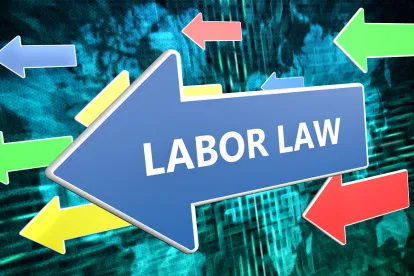Employers with operations in Mexico must brace themselves for significant changes in the labor laws in their workplace. Mexico is expected to pass legislation that will effectively overhaul the country’s labor laws to a standard similar to that in the United States. The changes will reshape Mexico’s labor relations for a generation.
Background
For at least 50 years, a company in Mexico could recognize a union and sign a contract with that union without any input or approval from workers. These agreements, referred to as “Protection Agreements,” often set employer-friendly contract terms and were signed before the company had hired workers at its worksite. With limited accountability, transparency, and no democratic elections, most unions in Mexico accommodated the needs of the companies. As a result, foreign direct investment in Mexico skyrocketed, but employee wages remained quite low. While there were independent unions in Mexico in some industries (such as in mining and airline), most unions were non-confrontational and did not provide consistent democratic processes to their members.
Now, the country has encountered a “perfect storm” for labor reform. In 2018, Mexico’s President Andrés Manuel López Obrador was elected, and his party, the Morena Party, won control of Mexico’s new congress. The Morena Party, which ran on a democratic socialist platform, campaigned for progressive labor reforms and greater employee rights. Simultaneously, the United States demanded labor law reforms as part of NAFTA 2.0 renegotiations. American unions and President Donald Trump criticized Mexico’s labor practices as unfairly undercutting American labor.
Under these circumstances, the new United States-Mexico-Canada Agreement (USMCA) expressly makes it a prerequisite to ratifying the treaty that Mexico adopt labor law reforms, such as elections of unions by secret ballot, transparent negotiation and contract approval, an independent labor adjustment board or court, and democratic election of union officers. Existing Protection Agreements will be phased out. These reforms will bring more democratic unions, but also more labor strife, union organizing campaigns, and tougher negotiations much like those in the United States.
Recently, Speaker Nancy Pelosi stated that the U.S. House of Representatives will not vote to ratify the USMCA until after Mexico has passed and implemented the labor law reforms required in Annex 23-A of the USMCA.
Annex 23-A
Under Annex 23-A, Mexico must modify its Federal Labor Law to include labor protections that have existed in the United States since the 1930s and 1940s. Under Annex 23-A, Mexico must adopt labor laws that:
- Protect the right of workers to engage in concerted activities for collective bargaining and to organize, form, and join the union of their choice.
- Prohibit employer domination or interference in union activities, as well as discrimination or coercion against workers for union activity or support.
- Prohibit unilateral changes to the collective bargaining agreement (CBA).
- Establish a new independent and impartial body to (a) register union representation elections, (b) resolve disputes concerning collective bargaining agreements, and (c) verify the election of union leaders.
- Create an effective system to verify that the election of union leaders are conducted through a personal, free, and secret vote of union members.
- Implement strict time limits for union representation elections with no delays due to procedural challenges or objections.
In addition, all existing CBAs must be ratified with the support of a majority of workers in the next four years to ensure Protection Agreements that lack actual worker support are fully eradicated. The current bill calls for faster and easier union representation elections. Currently, the proposed legislation requires only 30 percent of workers to certify a union representative to trigger an election/certification. Union representational challenges will no longer be reviewed by an executive department of Mexico’s federal government, which was criticized for rubber-stamping unions that did not have majority support. Instead, representational challenges will be subject to review by newly established and independent labor courts in the judicial branch. Further, any dispute over a CBA will likely be subject to mandatory mediation and the conciliation process before additional litigation may proceed.
Currently, the legislation is expected to pass by May 1, 2019. After the Mexican Federal Labor Law is amended, the budget and regulations of the new administrative body and labor courts must be submitted to the Mexican Congress and approved within six months. The implementation of these reforms will depend on the budget approved by the federal and local governments to create the new courts and transfer all labor matters to the new authorities.
What This Means for Employers
The expected changes likely will spur greater — and more meaningful — independent unionization than Mexico has ever experienced. Companies must prepare for a new era of labor relations. Colombia adopted similar reforms some years ago and it saw independent unionization triple in only a few years. Employers will face greater risks of unionization. Stronger and more militant unions will demand greater company concessions, and companies must adapt to greater restrictions and obligations to comply with the new Federal Labor Law. Independent union organizing drives likely will become much more common. Labor activity is already increasing, evidenced by recent strikes in the city of Matamoros, Mexico, where approximately 30,000 workers from more than 70 manufacturing companies went on strike for 20-percent pay raises.
Companies seeking to maintain the flexibility necessary to respond to a changing global marketplace should evaluate their labor relations strategy and seek legal advice on how to comply with these imminent new regulations and major changes in the labor landscape.





 />i
/>i

